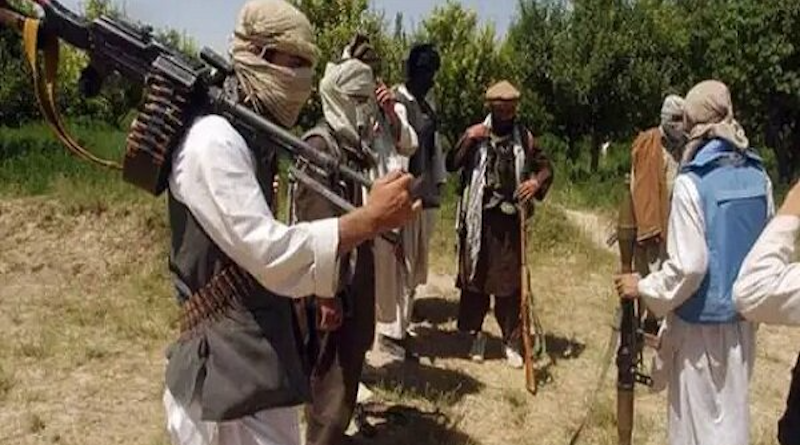The TTP Menace: Pakistan’s Battle For Border Security – OpEd
By Shah Khalid
The return of the Taliban to power in Afghanistan has sent shockwaves throughout the region, with its implications extending far beyond Afghanistan’s borders. Pakistan, in particular, is feeling the reverberations of this seismic geopolitical shift. As the Tehrik-i-Taliban Pakistan (TTP), also known as the Pakistani Taliban, gains strength and accelerates its attacks, Pakistan’s security landscape is becoming increasingly precarious.
The Tehrik-i-Taliban Pakistan (TTP) is an umbrella organization of various militant groups operating in the tribal areas of Pakistan. The TTP was formed in 2007 and is distinct from the Afghan Taliban, but it shares a common ideology rooted in radical Islamist beliefs. Over the years, the TTP has been responsible for numerous acts of terrorism in Pakistan, targeting civilians, security forces, and infrastructure.
With the Taliban’s return to power in Afghanistan, there has been a noticeable surge in TTP attacks along the Pakistan-Afghanistan border. The border region has long been a haven for militant groups, providing sanctuary and facilitating cross-border movements. This resurgence in TTP attacks poses a severe threat to Pakistan’s security.
The TTP’s Strengthened Presence in Afghanistan
The TTP has capitalized on the chaotic situation in Afghanistan, establishing a more formidable presence in Afghan territory. This expansion has allowed the TTP to regroup, train new recruits, and plan attacks with greater efficiency. The Taliban’s control of Afghanistan offers the TTP a supportive environment for launching attacks into Pakistan.
The Pakistan-Afghanistan border is known for its porous nature, making it challenging to control cross-border movements. This porosity has facilitated the movement of militants and the transfer of arms and explosives, adding to Pakistan’s security woes.
The TTP has exploited Afghan territory as a launchpad for its attacks on Pakistan. The group takes advantage of ungoverned spaces in Afghanistan to regroup, plan, and execute its violent operations in Pakistan.
The TTP’s targets in Pakistan have included civilians, security forces, and critical infrastructure. The group employs a range of tactics, from suicide bombings to targeted killings, to instill fear and destabilize the country. TTP attacks have taken a heavy toll on Pakistani civilians and security forces. The loss of lives, injuries, and destruction of property have disrupted the lives of ordinary Pakistanis and placed immense strain on the country’s security apparatus. Countering the TTP’s extremist ideology and preventing its recruitment within Pakistan remain critical challenges. Radicalization efforts, often conducted online, continue to lure young individuals into the TTP’s ranks.
Pakistan has been engaged in diplomatic efforts to address the TTP threat. It has urged Afghanistan to act against TTP militants on its territory and sought international support in curbing cross-border terrorism. Regional cooperation is vital in countering cross-border terrorism. Pakistan, Afghanistan, and neighboring countries must collaborate to stem the tide of militancy that threatens the region’s stability. The international community, particularly the United States, plays a pivotal role in facilitating regional cooperation and supporting efforts to combat the TTP. Afghanistan’s role in addressing the issue is also of paramount importance.
Counterterrorism Measures: Pakistan’s Response
Pakistan has conducted military operations against the TTP in an effort to root out the group’s strongholds and dismantle its infrastructure. While these operations have had some success, the TTP’s resilience remains a concern. Effective intelligence sharing and international support are indispensable in combating the TTP. Pakistan’s cooperation with other nations and intelligence agencies is crucial for tracking and neutralizing the TTP’s network. Addressing the root causes of terrorism in Pakistan, including economic disparities, social inequalities, and political instability, is essential in preventing the radicalization of individuals and mitigating the appeal of extremist groups like the TTP.
Thus, the resurgence of the Tehrik-i-Taliban Pakistan (TTP) poses a grave threat to Pakistan’s security and stability. As TTP attacks accelerate and the group strengthens its presence in Afghanistan, Pakistan faces significant challenges in securing its borders, protecting its citizens, and countering extremism. Regional cooperation, diplomatic efforts, and international support are essential in addressing the TTP threat. Pakistan’s ongoing efforts to combat the TTP are crucial for safeguarding the nation’s future and maintaining regional peace and security.

